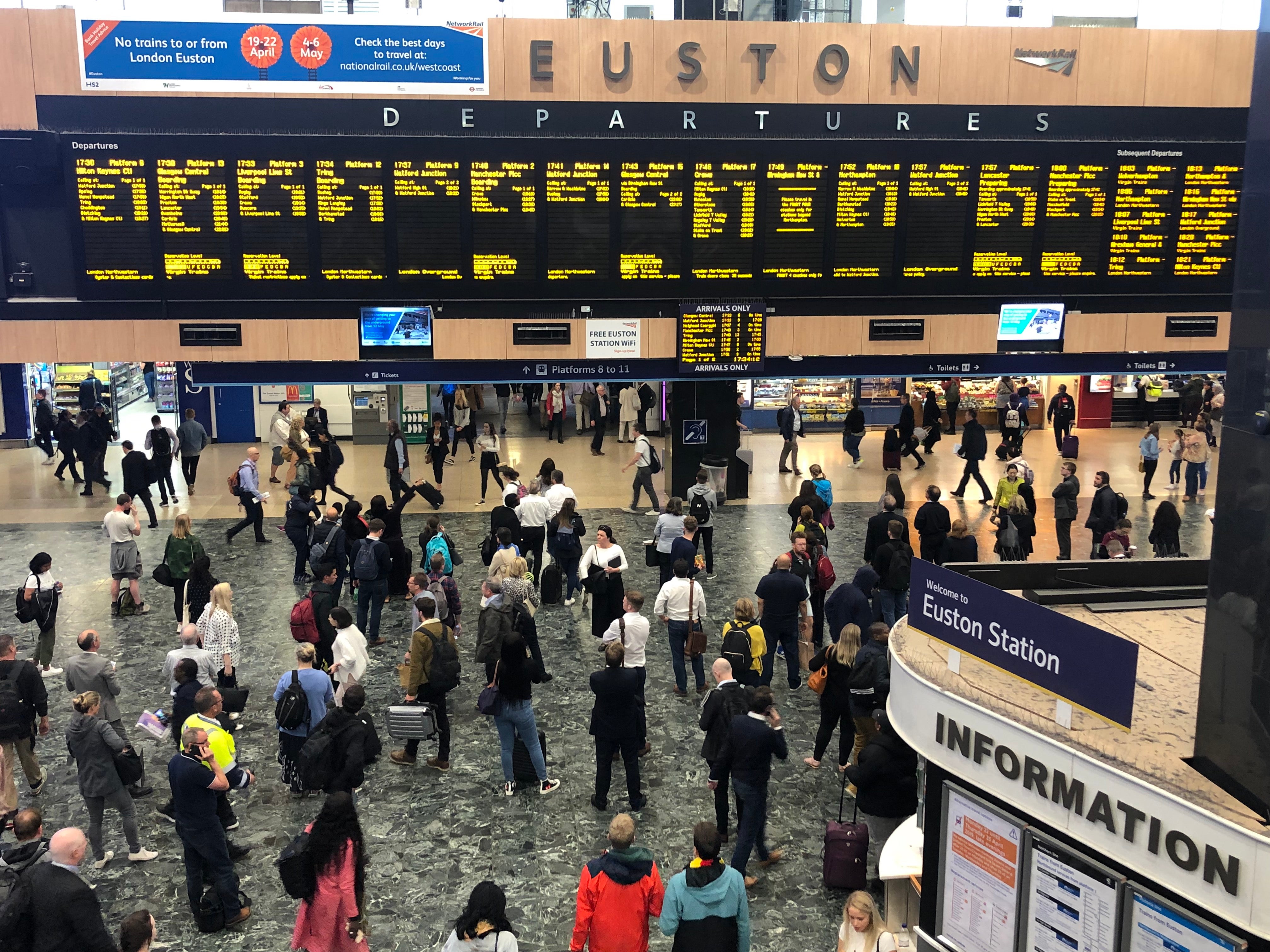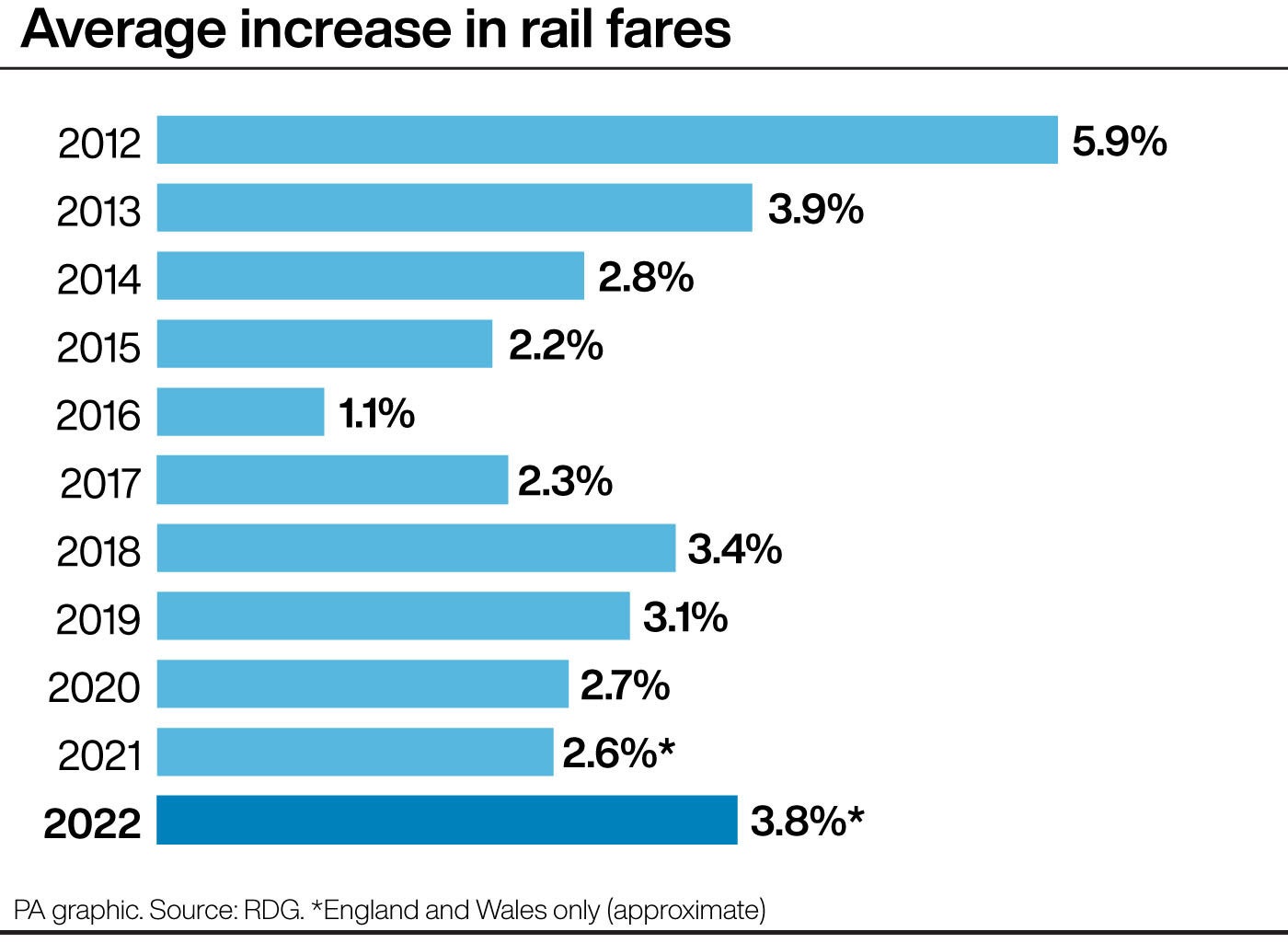Train fares are a shambles – without fair pricing the railways are set for a painful decline
The only possible way to preserve the network at its present level – let alone fund increased services – is to entice people out of their cars, argues Simon Calder


Yesterday, a one-way rush-hour ticket from Bristol to London would have cost £115. Today it is £3.40 more. But the Department for Transport (DfT) insists that it could have been worse.
“Rail fare rise capped below current inflation rate” reads the headline of the DfT press release that heralded the 3.8 per cent increase in fares across England and Wales . With Retail Price Index (RPI) running at 7.8 per cent, passengers could in theory have been made to pay £9 more.
Whether the percentage is zero, 3.8 or 7.8, it is entirely academic, since nobody sensible would dream of paying a figure like that for a journey of 118 miles. Fortunately, as all regulars on Brunel’s magnificent line between London Paddington to Bristol Temple Meads will know, the “Didcot Dodge” cuts the price by better than 40 per cent.
Passengers buy one ticket to Didcot Parkway and a second from there for the rest of the journey. As long as the train pauses at the Oxfordshire junction (and almost all do), this perfectly legal hack cuts the fare to something more manageable: £70.50.
This example sums up the shambles in rail fares that this government, like its predecessors, has yet to address. Ticket prices are full of anomalies. While those of us with time on our hands can circumvent eye-watering fares with ease, infrequent passengers will take one look at that £1-per-mile rate from Bristol to London and decide to drive or stay at home instead.

Their propensity to travel by train will not be enhanced by the propensity of rail unions to strike – as RMT members on the London Tube are doing today and on Thursday, with workers on CrossCountry trains picking up the industrial action baton on Saturday.
The government, and the RMT, surely understand that the once-captive market of commuters to London, who previously pumped £5bn annually into the railway for their season tickets, now celebrate the freedom to work from home. The coronavirus pandemic has accelerated the trend away from five-day-a-week commuting, and rail travel is increasingly discretionary.
The only possible way to preserve the network at its present level, let alone fund increased services, is to entice people out of their cars. They will expect fair and rational ticket prices for tickets, and reliable services. Unless ministers and union bosses accept the new reality, the railways are set for a long, painful decline.



Join our commenting forum
Join thought-provoking conversations, follow other Independent readers and see their replies
Comments